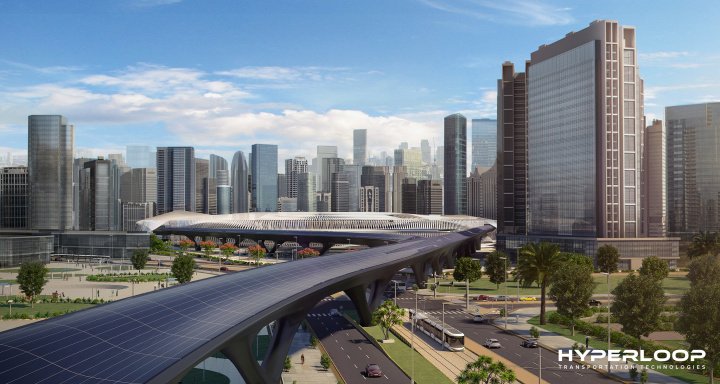
Date: 2024-12-21 Page is: DBtxt003.php txt00016155
Transportation
Hyperloop
Dubai to Abu Dhabi Hyperloop will cost up to AED 22-billion ... The first phase of the project involves construction of 10km out of a 150km system between Abu Dhabi and Dubai and is set to be ready next year.
Burgess COMMENTARY
Peter Burgess
Dubai to Abu Dhabi Hyperloop will cost up to AED 22-billion
The first phase of the project involves construction of 10km out of a 150km system between Abu Dhabi and Dubai and is set to be ready next year.

Hyperloop, Dubai, Abu dhabi
The world's first commercial hyperloop system, which is slated to open in Abu Dhabi in 2020, will cost between US $20-40-million per kilometre, according to a senior executive.
Bibop Gresta, chairman of Hyperloop Transportation Technologies, told state news agency WAM that Abu Dhabi's Hyperloop capsule has left the assembly facility in Spain and has been taken to Toulouse, France, where it will be tested.
The first phase of the project involves construction of 10km out of a 150km system between Abu Dhabi and Dubai and is set to be ready next year.
In April 2018, HyperloopTT signed a memorandum of understanding with Aldar Properties, which, when executed, will allow for the creation of a new Hyperloop TT centre including, a full scale commercial Hyperloop system, an Hyperloop R&D centre, a demonstration and visitor centre and an innovation hub.
'It was a far-fetched dream, but we are all excited now that it’s a dream coming true in the UAE in 2020,' Gresta told WAM.
'Basically, the Abu Dhabi Hyperloop system is right now past the feasibility study. We have already completed the study after we partnered with Aldar Properties last year. It will be the first commercial Hyperloop line in the world.'
Hyperloop passenger pod for Dubai-Abu Dhabi route unveiled
He added: 'Today we’re announcing that the capsule has already left the assembly facility in Spain, and is on its way to Toulouse, France, where we have a prototype track. As soon as it arrives in Toulouse, it will be put in a tube and then they will test the system with the first passenger.
'The capsule will be assembled and optimised in Toulouse, prior to use in the Emirates with the goal of eventually connecting Abu Dhabi to Al Ain and Dubai at unprecedented speeds, safely, efficiently, and sustainably,' he said.
The cutting-edge technology uses electro-magnetic levitation engineering to carry pods at 1,123 km/hr and is expected to reduce travel times between UAE cities to minutes.
'Hyperloop can quickly become profitable. It presents the ability to build a mass transit system that would not require government subsidies,' Gresta added.
Asked about the issue of safety, Gresta said: 'Hyperloop is primarily built on pylons, using best practices from civil engineering, including seismic design and ability to withstand thermal expansion. Also, it is completely automated with advanced technologies that only require monitoring from humans. The system is electrically powered, with no need for fuel on board, and is protected from the environment.
'We have developed tiered emergency plans and redundant escape procedures and systems in the event of any incident.'
-----------------------------------------------------------
Sir Richard Branson resigns as chairman of Virgin Hyperloop One
He added in comments published by WAM that the project 'can recoup the investment in 8-15 years'.